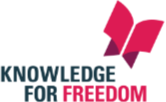Knowledge for Freedom Seminar
OVERVIEW
Slavery, or the idea of holding property in man, might well be the most insidious repudiation of American democratic ideals. And yet, slaveholding was both widespread and long-entrenched in the United States, a country that has always prided itself on embracing individualism and universal natural rights. How was such a fundamental contradiction even possible? That is the kind of searing question that can help open a gateway toward both deeper learning and more engaged citizenship. Students who successfully conclude this program and complete their final web-based projects will receive free Dickinson College credit for the equivalent of a History 101 general topical survey course.
View the full syllabus or the list of featured texts on the program’s website
WEEK ONE: Slavery Through World History
- Enslavement in Human Culture – Should we cancel slavery’s defenders?
- Aristotle’s defense of slavery in Politics (350 BCE)
- Tour with Dickinson Admissions
- Enlightenment in World History – Which individual rights are most important?
- Locke’s Second Treatise on Government (1689)
- Workshop with Admissions staff
- Bearing Witness – Is truth relative?
- America’s Founding – What was America’s true founding date?
- 1787 debates and US Constitution on slavery
- Dickinson & Slavery walking tour
- History, Politics and Law – When do American courts overreach?
- Dred (and Harriet) Scott decision (1857)
- Declaration of Sentiments (1848)
- Visit to Hope Station
- Saturday Personal Time
- “Glory” (Film)
WEEK TWO: The Other Lincoln-Douglass Debates
- Resisting Slavery – What is legitimate protest?
- Douglass’s Fifth of July Speech (1852)
- Lincoln’s letters (1855)
- Sojourner Truth, “Ain’t I a Woman?” (1851)
- Underground Railroad tour
- House Divided – When is bipartisanship the right path?
- Lincoln, House Divided speech (1858)
- Lincoln, First Inaugural (1861)
- Douglass’ editorials (1860-61)
- Workshop with Admissions staff
- New Birth of Freedom
- Malice Toward None – When is forgiveness important?
- Lincoln’s Second Inaugural (1865
- Douglass on Lincoln (1881)
- Augusta Jane Evans, Macaria (1864)
- College Archives trip
- Memory and History – How do protest movements triumph?
- Douglass’s 1876 speech at emancipation memorial
- Susan B. Anthony trial (1873)
- Follow up at Hope Station
- Saturday Personal Time
- “Lincoln” (Film)
WEEK THREE: Freedom & Equality in America
- Reconstructing America – How do we repair the legacy of slavery?
- Imagining Freedom & Equality – How can arts & literature promote social justice?
- Field Trip Day
- Field trip to Washington DC
- Art, Cinema, and Culture – How can we reimagine America’s monument landscape?
- Images as gateways
- Norman Rockwell and The Problem We All Live With
- Visit to Memorial Park
- Group Presentations
BLOG POSTS
During the first two weeks of the July seminar, students will have a short blog post due on Thursday nights (July 15, July 22) posted at their personal websites by 11pm. These posts (about 200 words each or one page, single spaced) will describe participant reactions to one of our weekly field trips or afternoon engagement activities. The posts should include photographs taken by the student or some creative inspiration from the activities (such as drawings, music, etc.).
CLOSE READING REFLECTIONS
During the first two weeks of the July seminar, students will have two short close reading reflections due on Sunday night, July 17 and Sunday night, July 24, posted at their personal websites by 11pm. These two close reading reflections (about 500 words or 2-3 pages single spaced) will summarize and analyze one of the featured texts from that previous week’s daily reading schedule. All reflections should be posted at the student’s personal WordPress site with a selection of 2-3 images (properly credited and captioned) and with one short, embedded video or audio file (podcast) that attempts to bring to life a short snippet (20 to 60 seconds) from the assigned text.
FINAL WEBSITE PROJECTS
Upon arrival at Dickinson, seminar participants will be assigned their own website in a WordPress platform (hosted by Dickinson) and will be taught how to build out both content and design for the creation of their own web-based portfolio. These online portfolios will then serve as a way for students to share their best academic work and most important civic commentaries with their family and friends, with potential colleges, and with the wider world. Dickinson College will continue to provide free hosting services for these websites through 2022. During the seminar, students will create three blog posts (about our field trips) and two close reading posts (about assigned course texts from Week 1 and Week 2).
Two weeks after completion of the July seminar (by August 15, 2021), students seeking college credit will also be required to submit an expanded version of their personal website, featuring revisions for their previously submitted blog posts and close reading reflections, one new close reading reflection (from any week of the seminar) and a new longer essay (about 1,500 words or roughly 3 to 5 pages, single spaced) that draws lessons about how best to achieve change in American democracy through comparing and contrasting the antislavery strategies of Frederick Douglass and Abraham Lincoln. Essays should include properly captioned and credited images as well as Chicago-style footnotes, citing wherever relevant the primary source texts from the course syllabus as well as secondary sources provided by the program (books or pamphlets by Delbanco, Hannah-Jones, Oakes and Pinsker. Outside research beyond these materials is allowed but not required.
